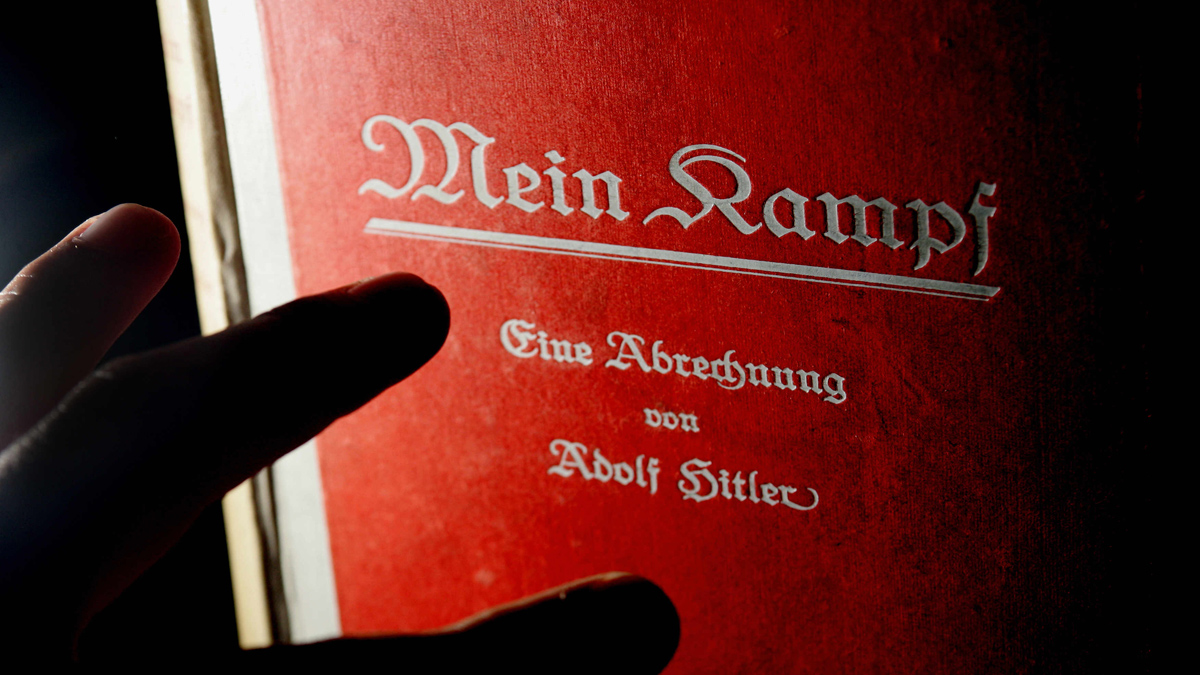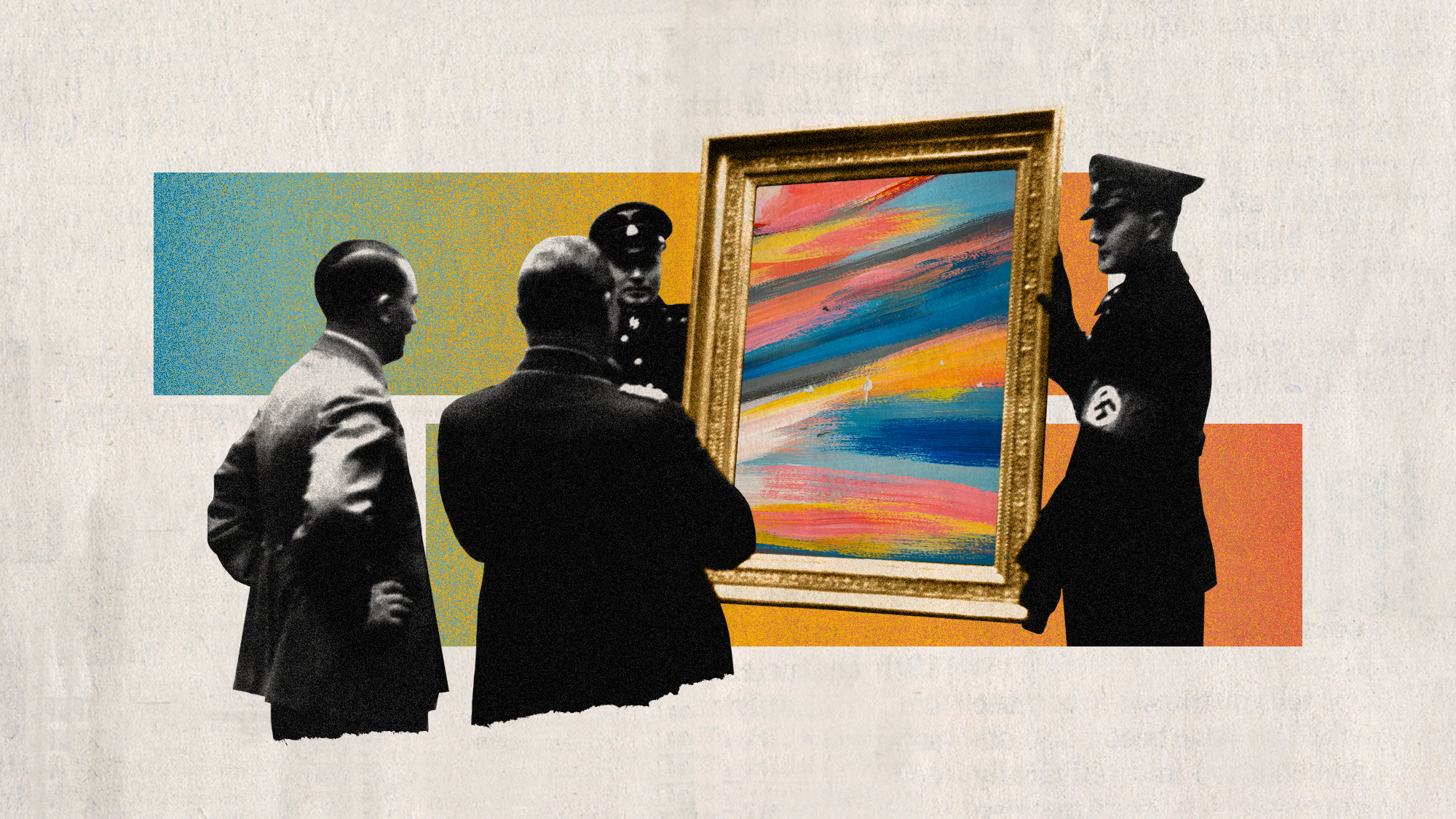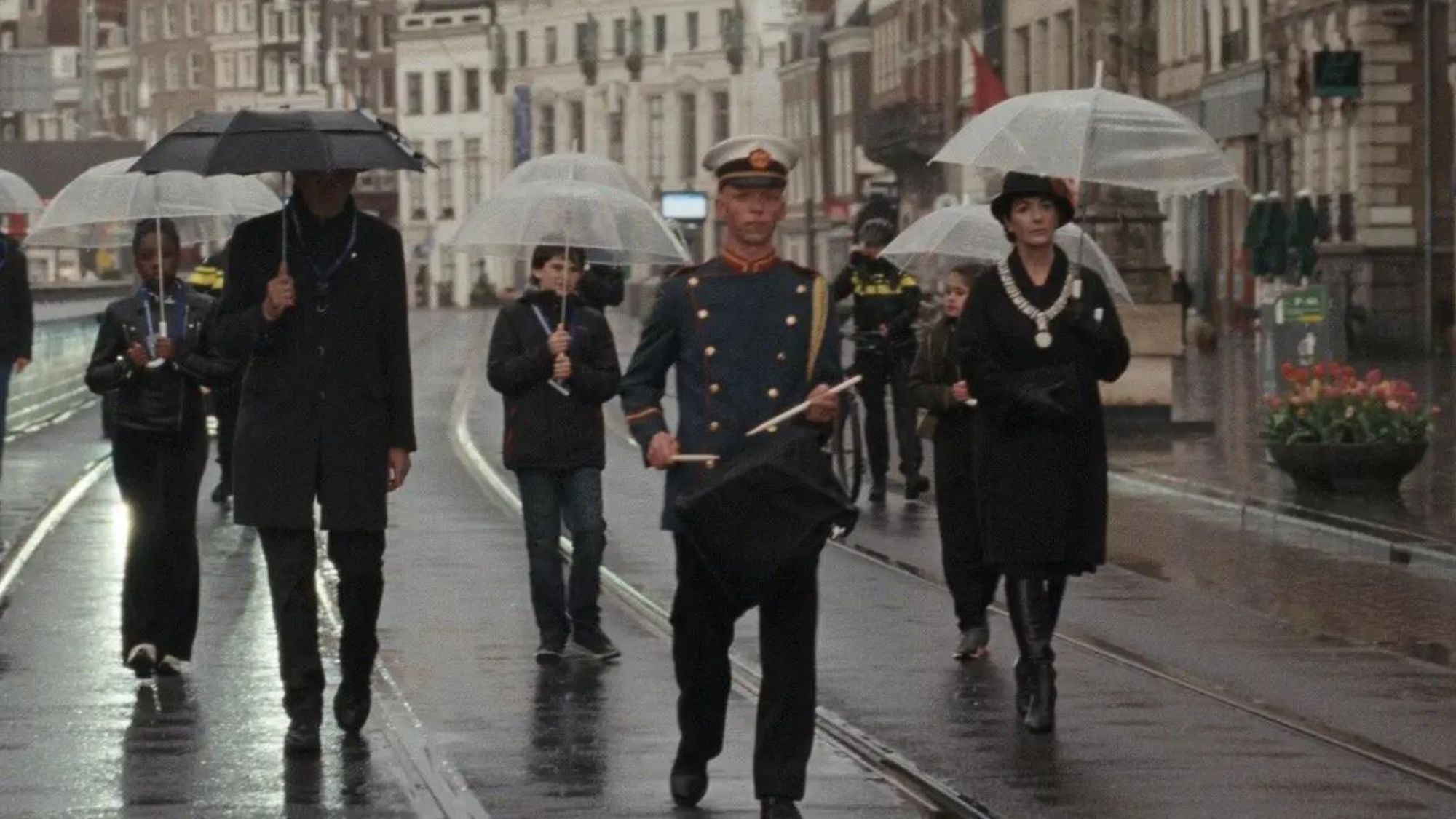Mein Kampf: is Hitler's manifesto too dangerous to be read?
Autobiography set to be released for the first time since WWII, but many argue publication should be blocked

A free daily email with the biggest news stories of the day – and the best features from TheWeek.com
You are now subscribed
Your newsletter sign-up was successful
One of the most contentious literary works in history is set to be republished in Germany next month despite widespread opposition.
Mein Kampf will be available in the country's bookshops for the first time since the end of the Second World War once the copyright to Hitler's memoir expires at the end of the year.
Up to 4,000 copies of the book are expected to be published by Germany's Institute of Contemporary History in January and will effectively be funded by the country's taxpayer.
The Week
Escape your echo chamber. Get the facts behind the news, plus analysis from multiple perspectives.

Sign up for The Week's Free Newsletters
From our morning news briefing to a weekly Good News Newsletter, get the best of The Week delivered directly to your inbox.
From our morning news briefing to a weekly Good News Newsletter, get the best of The Week delivered directly to your inbox.
The society insists the book, which includes critical notes and analysis by scholars, will serve as a vital academic tool and that access to it will be limited.
"The aim of this edition is thus to present Mein Kampf as a salient source document for contemporary history, to describe the context of the genesis of Hitler's worldview," it said.
But the decision to republish the Nazi manifesto at a time of rising anti-Semitism in Europe has led to fierce criticism from Jewish groups in Germany and warnings that it could stir neo-Nazi sentiment.
What is it like to read?
A free daily email with the biggest news stories of the day – and the best features from TheWeek.com
Hitler wrote the book in 1923 while imprisoned in a Bavarian jail. Part autobiography, part anti-communist propaganda, Mein Kampf details Hitler's views on Aryan "racial purity" and lays down the foundations for the Holocaust.
Reading it produces a "sickening sense of horror", says Esquire's Stephen Marche. In the 700-page manual, Hitler writes: "Jews will remain the eternal parasite, a freeloader that, like a malignant bacterium, spreads rapidly whenever a fertile breeding ground is made available to it."
Subject matter aside, Marche says the book is well written. "Its passion is infectious, its prose is clear," he says. "The wonder of the book is how succinct the absolute madness of it is."
But others argue that Hitler's style of writing is boring and unimaginative. A newer version of the book was edited by British historian Donald Cameron Watt. In his introduction he wrote that it was: "lengthy, dull, bombastic, repetitious and extremely badly written."
At times, the book is just "plain barmy," says the Daily Telegraph's Guy Walters. One such passage reads: "The Judaization of our spiritual life and the mammonization of our mating impulse sooner or later befouls our entire new generation."
Why shouldn't we read it?
"This book is too dangerous for the general public," said the Bavarian State Library historian who is tasked with guarding the original copy. Jewish groups agree, saying there can be no justification for the republishing of the book, even with academic annotations.
"Can you annotate the Devil?" said Levi Salomon, spokesman for the Berlin-based Jewish Forum for Democracy and Against Anti-Semitism. "This book is outside of human logic."
Why should we read it?
Academics have long campaigned for the book to be republished, says Adam Kirsch in the New Statesman. "By turning Mein Kampf into a totem of evil, whose very title makes us start jumping at shadows, we only reinforce its dark glamour," he says.
It is also vital that people know and understand the theories behind Nazism to avoid repeating the mistakes of the past. "Mein Kampf isn't just the story of a man, or a country, or a time,” says Marche. “It's a diagram of how the psychotic can be made real, a type of politics that must be understood, because it has long outlived its author."
Hitler did not lie about his goals and what he was willing to do to achieve them; he outlined them meticulously in his autobiography. Marche argues that the book should serve as a warning about far-right hate groups emerging in Europe like Greece's Golden Dawn.
"It's not just pantomime. They mean what they say. We should take them at their word."
-
 How the FCC’s ‘equal time’ rule works
How the FCC’s ‘equal time’ rule worksIn the Spotlight The law is at the heart of the Colbert-CBS conflict
-
 What is the endgame in the DHS shutdown?
What is the endgame in the DHS shutdown?Today’s Big Question Democrats want to rein in ICE’s immigration crackdown
-
 ‘Poor time management isn’t just an inconvenience’
‘Poor time management isn’t just an inconvenience’Instant Opinion Opinion, comment and editorials of the day
-
 From Hilde, With Love – the 'moving' story of an accidental revolutionary
From Hilde, With Love – the 'moving' story of an accidental revolutionaryThe Week Recommends Liv Lisa Fries gives a 'compelling' performance as the soft-spoken heroine.
-
 Riefenstahl: a 'gripping and incrementally nauseating' documentary
Riefenstahl: a 'gripping and incrementally nauseating' documentaryThe Week Recommends Andres Veiel's nuanced film examines whether the controversial film director was complicit in Nazi war crimes
-
 The Supreme Court revives a family's quest to recover looted Nazi art
The Supreme Court revives a family's quest to recover looted Nazi artUnder the Radar The painting in question is currently in a Spanish museum
-
 Is Ye finally about to be canceled for good?
Is Ye finally about to be canceled for good?TODAY'S BIG QUESTION From doubling down on overt antisemitism and Nazi admiration to a series of alarming public appearances, the rap superstar and fashion mogul might have finally gone too far
-
 Can Hollywood successfully tackle the horror of the Holocaust?
Can Hollywood successfully tackle the horror of the Holocaust?Talking Points Critics say three new films depicting 'humanity's darkest chapter' offer 'unexpected hopefulness'
-
 The Man in the High Castle, Amazon's addictive new thriller
The Man in the High Castle, Amazon's addictive new thrillerThe Week Recommends Will dystopian drama about life in Nazi-ruled America become the next must-watch box set?